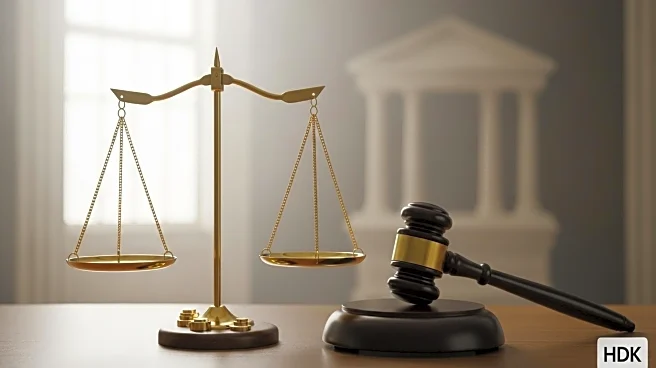What is the story about?
What's Happening?
Former FBI Director James Comey has been indicted on charges related to his testimony before Congress. The indictment accuses Comey of lying during his September 2020 testimony about whether he authorized the leak of classified information to the media. Comey, who has been a frequent target of criticism from President Trump, responded to the indictment by asserting his innocence and expressing confidence in the federal judicial system. This development marks a significant moment in the ongoing scrutiny of Comey's actions during his tenure as FBI Director.
Why It's Important?
The indictment of James Comey is significant as it underscores the contentious relationship between Comey and President Trump, which has been a focal point in U.S. politics. The charges could have implications for the credibility of Comey and the FBI, potentially affecting public trust in federal law enforcement agencies. Additionally, this case may influence ongoing debates about the politicization of justice and the handling of classified information. Stakeholders in the political and legal communities will be closely monitoring the proceedings, as they could set precedents for how similar cases are handled in the future.
What's Next?
As the legal process unfolds, Comey's case will likely attract significant media attention and public scrutiny. The federal judicial system will play a crucial role in determining the outcome, which could have ramifications for Comey's career and reputation. Political leaders and legal experts may weigh in on the case, potentially influencing public opinion and policy discussions regarding the handling of classified information and accountability in government. The outcome of the trial could also impact future legislative actions related to transparency and oversight of federal agencies.
Beyond the Headlines
The indictment raises broader questions about the intersection of politics and law enforcement in the United States. It highlights the challenges faced by public officials in maintaining impartiality and integrity amidst political pressures. The case may prompt discussions about the ethical responsibilities of government officials and the importance of safeguarding classified information. Long-term, this development could influence public perceptions of the FBI and its role in national security, potentially affecting recruitment and operational strategies within the agency.
















